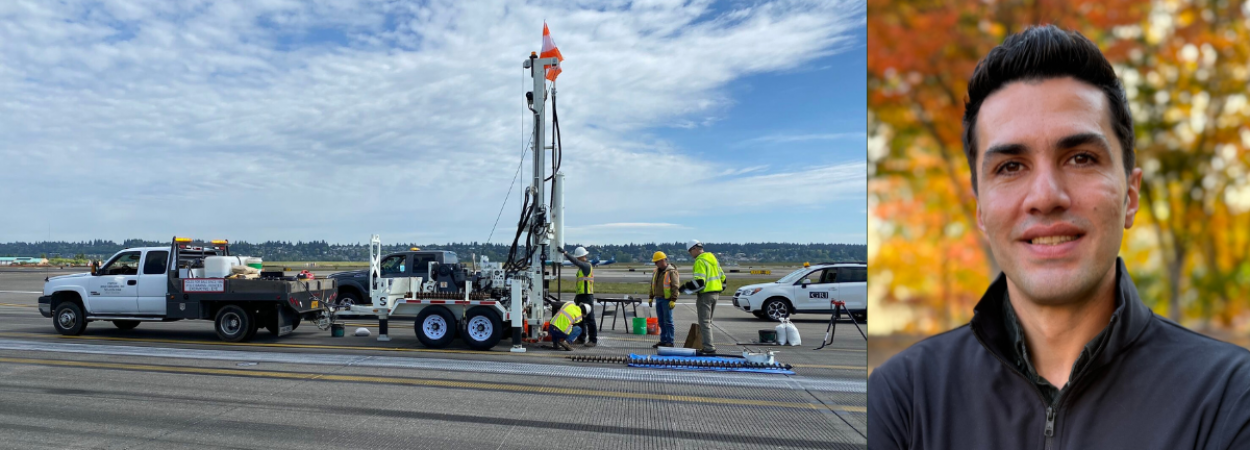Milad Souri graduated from Portland State University in 2021 with a PhD in Civil and Environmental Engineering. While at PSU, he devoted his doctoral research to the Development of a Design Guideline for Pile Foundations Subjected to Liquefaction-Induced Lateral Spreading with advisor Arash Khosravifar. He now works as a Project Engineer at GRI.
Connect with Milad on LinkedIn
What do you do in your current role, and what does a typical day look like?
In my current role as a geotechnical engineer, I focus on the seismic evaluation and design of waterfront and transportation structures. A typical day often involves running numerical models to understand ground deformation during earthquakes, reviewing geotechnical data, and collaborating with structural and marine engineers to develop safe and efficient design solutions. I also work closely with other parts of the project team to prepare results for reports and other deliverables. I enjoy that my work blends advanced analysis with real-world engineering challenges that directly impact the resilience of infrastructure.
How did your experience at PSU shape your path into the transportation field?
PSU gave me the opportunity to connect academic research with practical engineering challenges. During my PhD I worked on projects focused on the seismic behavior of foundations and waterfront structures, which sparked my long-term interest in how transportation and port systems respond to earthquakes. The mentorship and collaboration I experienced at PSU really shaped how I approach engineering combining rigorous analysis with real world impact.
What advice would you give to current students or recent grads interested in a career in transportation?
I’d encourage students to stay curious and open to learning across different disciplines as transportation projects often bring together geotechnical, structural, and environmental perspectives. Try to get as much practical experience as you can, whether through internships, research, or working with professors on applied projects. Building a strong technical foundation is important, but so is learning how to work effectively with people from other disciplines. Collaboration is what truly drives successful transportation projects.
What’s one project or accomplishment you’re especially proud of in your career so far?
One project I’m particularly proud of is the Portland International Airport South Runway Seismic Mitigation Design, the nation’s first intentionally seismically resilient runway. It’s designed to support immediate relief and long-term regional recovery after a magnitude 9 earthquake. Contributing to a project that strengthens critical infrastructure and enhances community resilience has been incredibly rewarding.
Portland State University's Transportation Research and Education Center (TREC) is a multidisciplinary hub for all things transportation. We are home to the Initiative for Bicycle and Pedestrian Innovation (IBPI), the data programs PORTAL and BikePed Portal, the Better Block PSU program, and PSU's membership in PacTrans, the Pacific Northwest Transportation Consortium. Our continuing goal is to produce impactful research and tools for transportation decision makers, expand the diversity and capacity of the workforce, and engage students and professionals through education, seminars, and participation in research. To get updates about what's happening at TREC, sign up for our monthly newsletter or follow us on social media.




